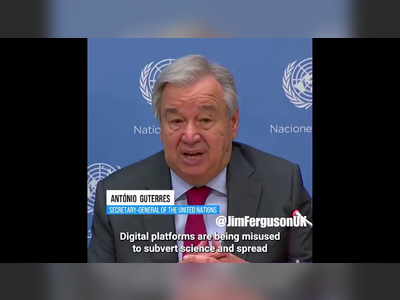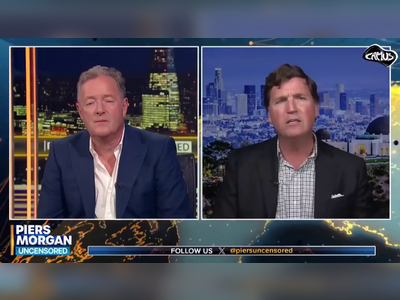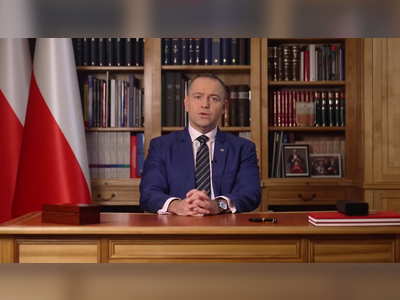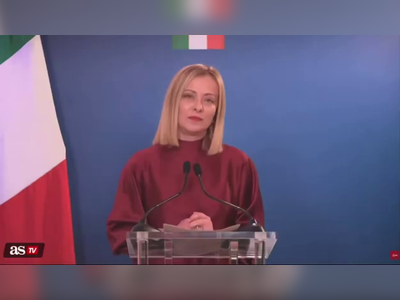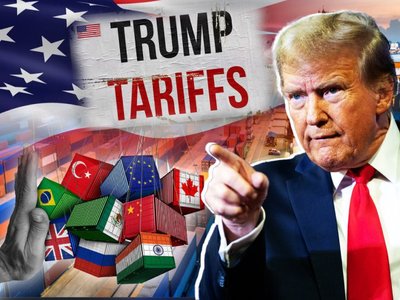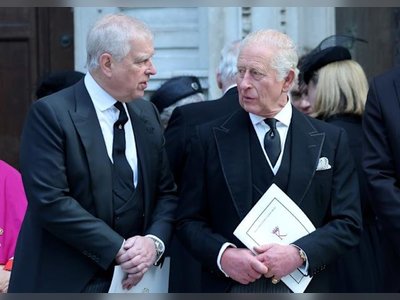Ukraine's Ongoing Struggle Against Russian Resilience: A Global Power Shift in the Making?
As the conflict in Ukraine surpasses a thousand days, geopolitical dynamics and Western resolve undergo critical examination against the backdrop of Russia's entrenched strategy.
The enduring conflict in Ukraine has become a theatre not only of military hardships but of significant geopolitical recalibration.
More than a thousand days after Russia's initial invasion, the world watches as missile strikes persistently punctuate Ukrainian cities, notably targeting centers like Kiev and diplomatic embassies—a stark reminder of the conflict's relentless toll.
Amidst these ongoing aggressions, the prospect of a shifting American political landscape looms; the possible return of Donald Trump to the presidency poses questions about future U.S. engagement in the crisis.
This, however, is merely one factor in the broader context of transforming global alliances.
The war has sparked a complex debate concerning the stamina of each nation involved.
Russia, while economically beleaguered and internationally sanctioned, continues to exhibit military gains.
Analysts are divided: some applaud this as a testament to strategic tenacity—even if it comes at a high moral and economic cost—while others are critical of what they see as a precarious, unsustainable endeavor that lacks ethical justification.
Ukraine remains caught between its resolute fight and the palpable need for continued Western support.
This necessity underscores the vulnerabilities that could reshape international relationships should Western allies become weary.
The potential for a shift in leadership in the United States further complicates predictions about continued military and financial aid.
Historical precedents remind us that geopolitical power dynamics have shifted dramatically in the past, often spurred by the inability of established powers to adapt to changing realities.
As the Cold War has taught, power ebbs and flows, and current global economic pressures could lead to novel partnerships or shifts in policy allegiances.
Ukraine, on the frontlines of this conflict, symbolizes resistance—an enduring line against autocracy—but it remains dependent on its economic allies to uphold this stance.
The endurance of this conflict raises critical questions: how long can both Ukraine and Russia sustain their current strategies?
What role will economic pressures in the West play in shaping future alliances?
Each missile strike exacerbates existing strains in international relations, yet history suggests that negotiation and compromise are eventualities of prolonged conflict.
Looking forward, a resolution will likely demand a multifaceted strategy that combines military, diplomatic, and perhaps unforeseen channels of mediation.
Moving forward, the lessons of history emphasize the need for innovation and diplomacy that transcend traditional boundaries.
As remembrance of the past illuminates the present, today's leaders must contemplate these lessons to steer towards a lasting peace.
More than a thousand days after Russia's initial invasion, the world watches as missile strikes persistently punctuate Ukrainian cities, notably targeting centers like Kiev and diplomatic embassies—a stark reminder of the conflict's relentless toll.
Amidst these ongoing aggressions, the prospect of a shifting American political landscape looms; the possible return of Donald Trump to the presidency poses questions about future U.S. engagement in the crisis.
This, however, is merely one factor in the broader context of transforming global alliances.
The war has sparked a complex debate concerning the stamina of each nation involved.
Russia, while economically beleaguered and internationally sanctioned, continues to exhibit military gains.
Analysts are divided: some applaud this as a testament to strategic tenacity—even if it comes at a high moral and economic cost—while others are critical of what they see as a precarious, unsustainable endeavor that lacks ethical justification.
Ukraine remains caught between its resolute fight and the palpable need for continued Western support.
This necessity underscores the vulnerabilities that could reshape international relationships should Western allies become weary.
The potential for a shift in leadership in the United States further complicates predictions about continued military and financial aid.
Historical precedents remind us that geopolitical power dynamics have shifted dramatically in the past, often spurred by the inability of established powers to adapt to changing realities.
As the Cold War has taught, power ebbs and flows, and current global economic pressures could lead to novel partnerships or shifts in policy allegiances.
Ukraine, on the frontlines of this conflict, symbolizes resistance—an enduring line against autocracy—but it remains dependent on its economic allies to uphold this stance.
The endurance of this conflict raises critical questions: how long can both Ukraine and Russia sustain their current strategies?
What role will economic pressures in the West play in shaping future alliances?
Each missile strike exacerbates existing strains in international relations, yet history suggests that negotiation and compromise are eventualities of prolonged conflict.
Looking forward, a resolution will likely demand a multifaceted strategy that combines military, diplomatic, and perhaps unforeseen channels of mediation.
Moving forward, the lessons of history emphasize the need for innovation and diplomacy that transcend traditional boundaries.
As remembrance of the past illuminates the present, today's leaders must contemplate these lessons to steer towards a lasting peace.


